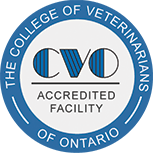Preventative Medicine

Herd Health is a name given to regularly scheduled veterinary visits to examine, vaccinate and deworm a group of horses. Our goals are to advise you on problems that you may be having with the group or individual horse, such as allergic airway disease, and to try to maximize the health of your horses. We are genuinely committed to health and education and hope to see every horse in our care live up to its full potential. There are constantly changing vaccine protocols and management issues that we are trained to help you with. We recommend two yearly visits for herd health.
GENERAL PHYSICAL EXAMINATION
The physical examination of your horse may be generalized or focused depending on the health status, age or owner concerns. The physical exam is preformed to establish a base line should anything happen to your horse in the future we have something to refer back to.
FECAL EGG COUNT & DEWORMING
In the past few years there have been some significant changes to the recommendation for deworming of horses. The previous recommendations were made in the 1960’s and the landscape of internal parasites which are of concern has changed a lot in that time. We also have a lot more knowledge about the life cycle and seasonal influences of internal parasites in horses.
The American Association for Equine Practitioners (AAEP) is asking us to change our deworming practices. As the use of dewormer increased, resistance to antiparasitic agents started to develop in equine parasites. Frequent deworming has been identified as the most important risk factor for the development of resistance. Strategic deworming is essential to preserving our ability to control parasites and insure the health and performance of horses. This involves identifying the horses who are more susceptible to harboring and shedding the parasites. Once we have this information, then we can put the “heavy shedders” on a more regular deworming schedule. Most of our animals will annually be low shedders and thus require deworming only twice a year.
We are recommending fecal egg counts to be done on all horses in the spring after they have been on pasture for 2-3 weeks prior to giving any dewormer. This will help identify the horses who are heavily infected and may require continual deworming, and those who can wait until fall for a second deworming. It’s been estimated that 20% of horses will be “heavy shedders” and need to continue on a regular deworming program every 8-12 weeks throughout the Spring, Summer and Fall. Heavy shedders should also have an additional fecal egg count 2 weeks after deworming to make sure they haven’t developed resistance to the product being used. Deworming in the winter is now considered to be unnecessary unless you have a young horse or foal. For farms with large herds of horses, you may want to consider doing fecal egg counts on only a few horses at one time if testing the entire herd seems like a daunting task. Studies have shown that targeted deworming saves money in the long run and eliminates unnecessary deworming.
We are able to preform Fecal Egg Counts in our in-house lab.
EQUINE NUTRITION
Correct and balanced nutrition is a critical component of proper horse care. Each horse has its own nutrient requirements based on many factors ie: Age and work load. If you have any questions about feeding your horse please don’t hesitate to contact us to discuss Equine Nutrition.


